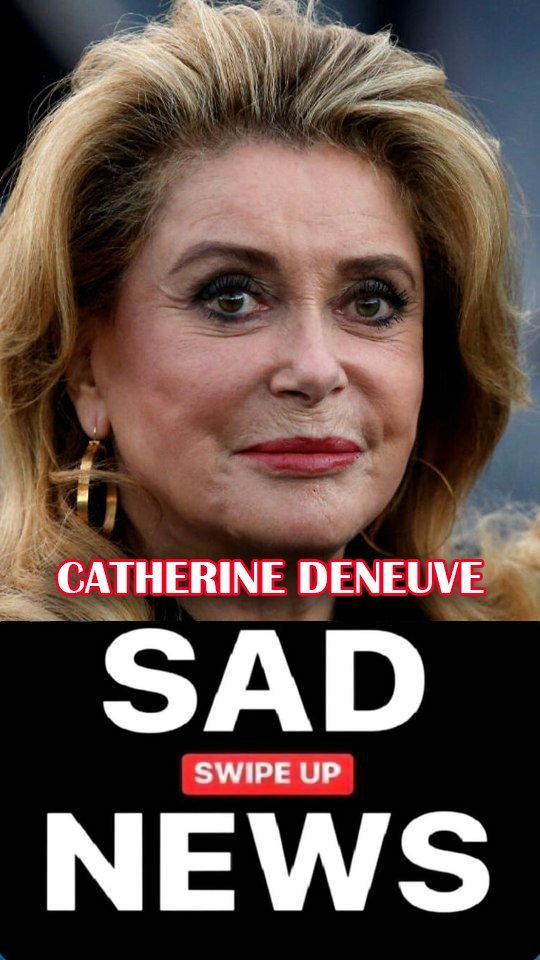
The renowned French actress Catherine Deneuve has been hospitalized after experiencing a stroke.
According to a statement from her family released to Agence France-Presse on Wednesday, the 76-year-old actress suffered a “very limited stroke that is reversible.”
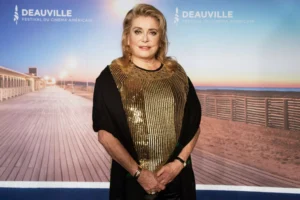
“Fortunately, she has not lost any motor function, though she will need to rest for a while,” the statement added.
Sources informed PEOPLE that the stroke occurred on Tuesday afternoon while Deneuve was on the set of her latest film, De son vivant (In Her Lifetime), in Gonesse, France.
Catherine Deneuve, a legendary figure in cinema, launched her career in the 1960s. She is best known for her roles in timeless films such as Belle de Jour, The Umbrellas of Cherbourg, and Repulsion. Deneuve also collaborated with prominent directors like François Truffaut and Roman Polanski, earning an Oscar nomination for her role in the 1993 film Indochine.

Most recently, Deneuve appeared in The Truth, which premiered at the Venice Film Festival earlier this year, sharing the screen with Ethan Hawke and Juliette Binoche. She attended the festival in August alongside her co-stars.
In January 2018, Deneuve faced controversy after signing an open letter that criticized the #MeToo movement, describing it as a “witch hunt.”

A Glance at a Remarkable Career
In a September interview with Le Parisien, Deneuve reflected on her long and storied career. When asked what it was like to be her, she responded, “I don’t know, because I don’t live with Catherine Deneuve! I don’t see myself that way. I don’t think about it constantly. Sometimes, I completely forget, because I live quite simply. I go out with friends, watch movies… I just try to avoid crowded beaches in August!”
When questioned about what people might say about her after her death, she remarked, “They might say I worked a lot in my life. They’ll talk about my long career… But I’m still focused on the present; I don’t dwell on the future. The most important thing is that I’m content with myself.”
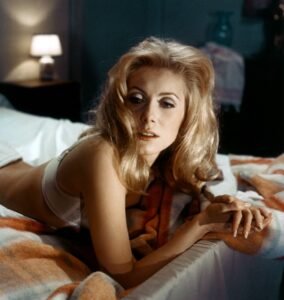
The Enigmatic Allure of Catherine Deneuve
Catherine Deneuve was a leading figure in the wave of European cinema during the 1960s. She made her mark with a starring role in Jacques Demy’s 1964 musical The Umbrellas of Cherbourg, which won the prestigious Palme d’Or at the Cannes Film Festival. She continued to work with Demy, as well as other legendary directors like Luis Buñuel, Roman Polanski, and François Truffaut.
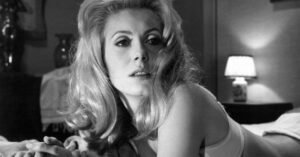
When LIFE’s Loomis Dean photographed Deneuve in 1961, she was already a rising star, even though she was initially recognized more as a fashion model. Deneuve, who was born on October 22, 1943, in Paris, was about 18 years old when she posed for Dean. With her dark hair, she appeared in LIFE’s April 1962 issue in an article titled “Windfall of New Beauties,” which highlighted a new generation of European actresses. In the article, she was described as “France’s Catherine Deneuve, 18, the protégée of director Roger Vadim, who made a star of Bardot. Direct in manner, haughty offstage but appealing in her roles, she excels in portraying adolescents emerging into womanhood.”
At Vadim’s suggestion, Deneuve later dyed her hair blonde, a look she would famously sport in many of her iconic films, including Buñuel’s Belle de Jour (1967), where she played a bored housewife who leads a double life as a prostitute.

Deneuve has often been described as cool and aloof, an image she does not appreciate. In a 2008 interview with Film Comment, she expressed her frustration, saying, “I am shocked when people sum me up as: blonde, cold, and solemn. People latch onto whatever reinforces their preconceptions about a person.”
Even at the age of 18, Deneuve’s eyes in Dean’s photos suggested a depth of knowledge. Now, at 80, she continues to act, appearing in the 2023 French film Bernadette, where she portrayed the widow of former French president Jacques Chirac.
Those captivating eyes still have many stories left to tell.
A Legacy in Images
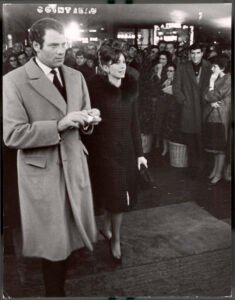
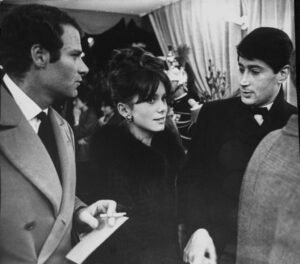
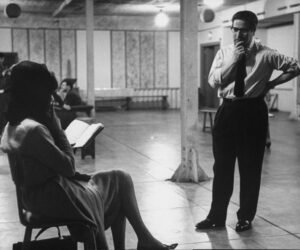
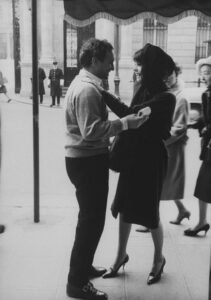
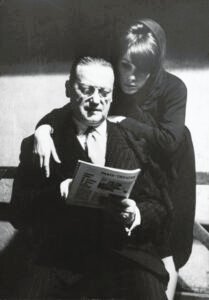
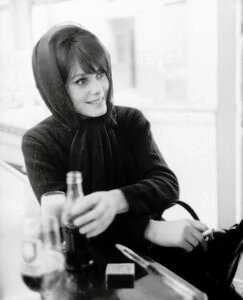
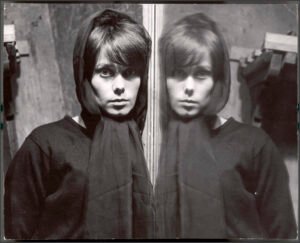
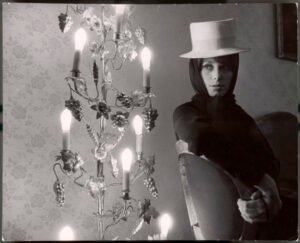
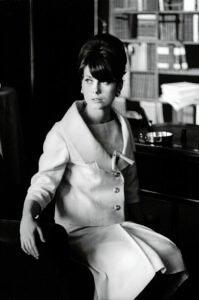
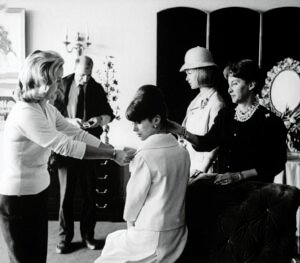
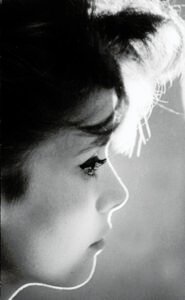
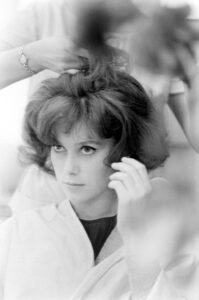
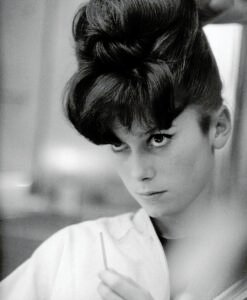
In 1961, Loomis Dean captured Catherine Deneuve in a series of stunning photographs that have become part of her enduring legacy. These images, preserved in the LIFE Picture Collection, show Deneuve at the beginning of what would become a remarkable career in cinema. Featured alongside prominent figures like her father, actor Maurice Dorléac, and French TV director Marcel Cravenne, these photos are a testament to the early days of a star who would go on to captivate audiences for decades.
Catherine Deneuve, with her timeless beauty and undeniable talent, has left an indelible mark on the world of film, a legacy that continues to evolve with each new role she takes on.
Catherine Deneuve: A Timeless French Cinema Icon
Catherine Deneuve, born on October 22, 1943, in Paris, France, is celebrated for her quintessential French beauty and her remarkable contributions to cinema, having worked with some of the most esteemed directors in the industry.
Early Life and Career Beginnings

Deneuve was the third of four daughters born to actors Maurice Dorléac and Renée Deneuve. She made her first appearance on the big screen with a small role in the 1957 film Les Collégiennes (The Twilight Girls). However, it was not until 1960 that she embarked on her film career in earnest with an appearance in Les Petits Chats (released in English as Wild Roots of Love). Her breakthrough came with her critically acclaimed performance in Jacques Demy’s romantic classic Les Parapluies de Cherbourg (1964; The Umbrellas of Cherbourg), which propelled her to international stardom.
Collaborations with Renowned Directors

Throughout the 1960s and ’70s, Deneuve became a sought-after actress for many of the world’s leading directors. She worked with Roman Polanski in Repulsion (1965) and Terence Young in Mayerling (1968). Her performances in Luis Buñuel’s Belle de jour (1967) and Tristana (1970) further cemented her status as an iconic actress. Although she occasionally appeared in American films—most notably The April Fools (1969) with Jack Lemmon and Hustle (1975) with Burt Reynolds—Deneuve’s most significant contributions were in French cinema.
A Legacy of Unforgettable Performances
Deneuve’s collaborations with François Truffaut in La Sirène du Mississippi (1969; Mississippi Mermaid) and Le Dernier Métro (1980; The Last Metro), along with roles in Demy’s Peau d’âne (1970; Donkey Skin), Jean-Pierre Melville’s Un Flic (1971; Dirty Money), and Claude Berri’s Je vous aime (1980; I Love You All), are among her most notable works.
The 1990s brought further acclaim, particularly with her role in Indochine (1992), which earned her an Academy Award nomination for Best Actress. She also impressed audiences with her performances in Manoel de Oliveira’s O convento (1995; The Convent) and Lars von Trier’s Dancer in the Dark (2000), where she played a factory worker supporting the film’s lead character, portrayed by Björk.
Continued Excellence into the 21st Century

In the early 21st century, Deneuve delivered a powerful performance in François Ozon’s 8 Femmes (2002; 8 Women), which featured an ensemble cast. She also appeared in Oliveira’s Je rentre à la maison (2001; I’m Going Home) and Une Filme falado (2003; A Talking Picture), later reuniting with Ozon for the comedy Potiche (2010).
Her recent roles include portraying a woman embarking on a road trip after a failed love affair in Elle s’en va (2013; On My Way), and playing a family court judge in La Tête haute (2015; Standing Tall), where she attempts to guide a troubled juvenile away from a life of crime. Deneuve’s later work includes performances in Sage femme (2017; The Midwife), Mauvaises herbes (2018; Bad Seeds), and La vérité (2019; The Truth).
Personal Life and Recognition
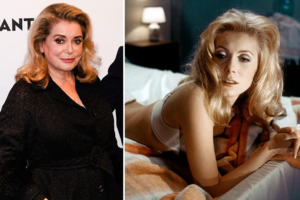
Beyond her film career, Deneuve attracted attention for her relationships with director Roger Vadim and actor Marcello Mastroianni. Both relationships produced children, including actress Chiara Mastroianni, with whom Deneuve has acted in several films, such as the Demy-inspired musical Les Bien-Aimés (2011; Beloved) and 3 Coeurs (2014; 3 Hearts). Her older sister, Françoise Dorléac, was also a successful actress; the two sisters starred together in Demy’s Les Demoiselles de Rochefort (1967; The Young Girls of Rochefort).
In recognition of her outstanding contributions to cinema, Deneuve was awarded the Japan Art Association’s prestigious Praemium Imperiale prize for theatre/film in 2018.
Catherine Deneuve remains a luminous presence in the world of film, her career spanning over six decades and continuing to captivate audiences around the globe.
